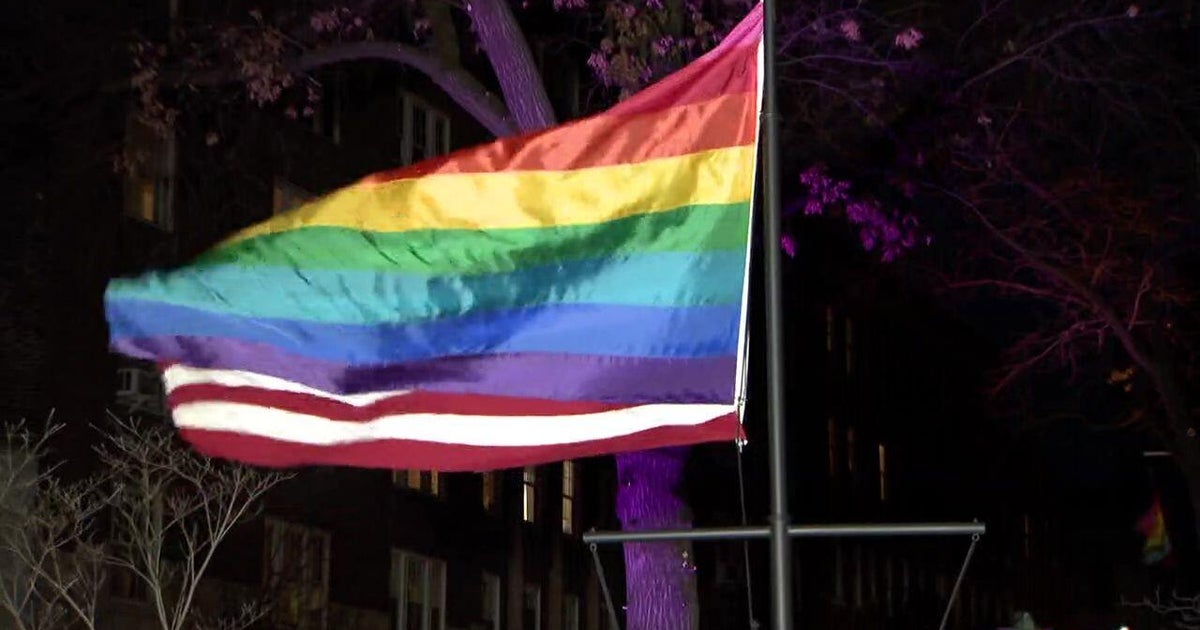Pelosi and Schumer back $908 billion bipartisan COVID proposal as basis for talks
Washington — Speaker Nancy Pelosi and Senate Minority Leader Chuck Schumer indicated their support for a bipartisan, bicameral coronavirus relief plan as the basis for future negotiations and called on Senate Majority Leader Mitch McConnell to join talks over the multi-billion-dollar aid package.
"While we made a new offer to Leader McConnell and Leader McCarthy on Monday, in the spirit of compromise we believe the bipartisan framework introduced by Senators yesterday should be used as the basis for immediate bipartisan, bicameral negotiations," Schumer and Pelosi said in a joint statement, referring to the Republican leadership in the House and Senate.
The shift represents a major concession from the Democratic leaders, who for months had held firm on their demand for a bill totaling more than $2 trillion.
It is unclear whether the White House will back the $908 billion plan proposed by lawmakers on Tuesday. Treasury Secretary Steven Mnuchin said President Trump would sign a narrower relief plan proposed by McConnell.
The bipartisan group of lawmakers rolled out their plan on Tuesday, which includes aid to state and local governments, small businesses and jobless Americans. Like McConnell's bill, this proposal would not include another round of stimulus checks.
The proposal would provide state and local governments with $160 billion and small businesses with $288 billion, including through the Paycheck Protection Program. It also allocates $82 billion for education and $16 billion for vaccine development and distribution, as well as testing and contact tracing.
For Americans out of work, the measure sets aside $180 billion for additional unemployment insurance. The plan also provides short-term liability protection from coronavirus-related lawsuits, a priority of McConnell.
"Of course, we and others will offer improvements, but the need to act is immediate and we believe that with good-faith negotiations we could come to an agreement," Pelosi and Schumer said in their joint statement. "In light of the urgency of meeting the needs of the American people and the hope that the vaccine presents, it's time for Leader McConnell to sit down with Democrats to finally begin a true, bipartisan effort to meet the needs of the country."
McConnell's plan is similar to legislation he proposed earlier this year, which was a targeted $500 billion bill focused on providing funding for small businesses, schools and liability protections. Senate Democrats twice blocked this bill, arguing that it did not go far enough to help struggling Americans. McConnell has advertised his proposal as a stopgap which would not address all problems, but would help provide some needed relief in the meantime.
McConnell's bill would extend critical unemployment programs by just one month. It would extend the Pandemic Unemployment Assistance and the Pandemic Emergency Unemployment Compensation programs to January 31, with an additional two months to phase out the programs. Both of these programs are currently set to expire at the end of December.
However, the bill does not appear to include any supplemental unemployment benefits. The bipartisan CARES Act, passed earlier this year, allowed for an additional $600 per week to be provided on top of unemployment insurance. This provision expired at the end of July, and Congress has been unable to negotiate a deal to reinstate these popular benefits. It also does not include funding for state and local governments, which is a priority for congressional Democrats.
Mnuchin told reporters on Wednesday that he believed Mr. Trump would support this bill.
"The president will sign the McConnell proposal he put forward yesterday, and we look forward to making progress on that," Mnuchin said at the Capitol before a hearing before a House committee.
Mnuchin and Pelosi have been deadlocked over negotiations since the summer. They resumed talks this week. In a letter to Mnuchin at the end of October, Pelosi placed the blame for the ongoing stalemate squarely on the Trump administration, arguing Democrats still have not received word on compromise language for a strategic testing, tracing and treatment plan, vaccines, and Obamacare coverage for Americans who are out of work.
The House has passed a $2.2 trillion bill which is considered a nonstarter by Senate Republicans. It is unclear how willing Pelosi would be to consider the narrow bill proposed by McConnell, given that Senate Democrats have blocked his similar legislation twice before.
The calculations by members of Congress are affected by the needs of unemployed Americans, with the clock on crucial relief programs set to expire at the end of the year ticks down. Twelve million Americans are set to lose extended unemployment benefits at the end of the year.
Meanwhile, nearly 14 million Americans have contracted the coronavirus, and more than 270,000 Americans have died from the virus.
Melissa Quinn contributed to this report.



